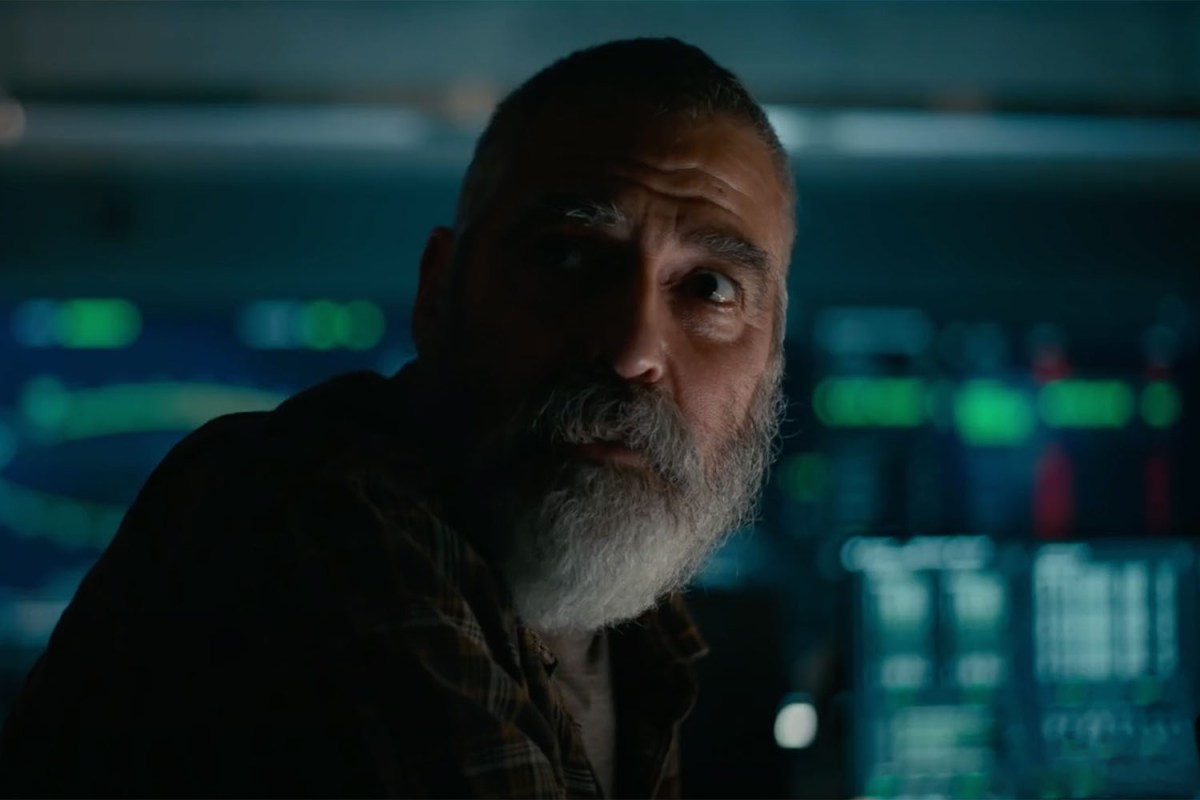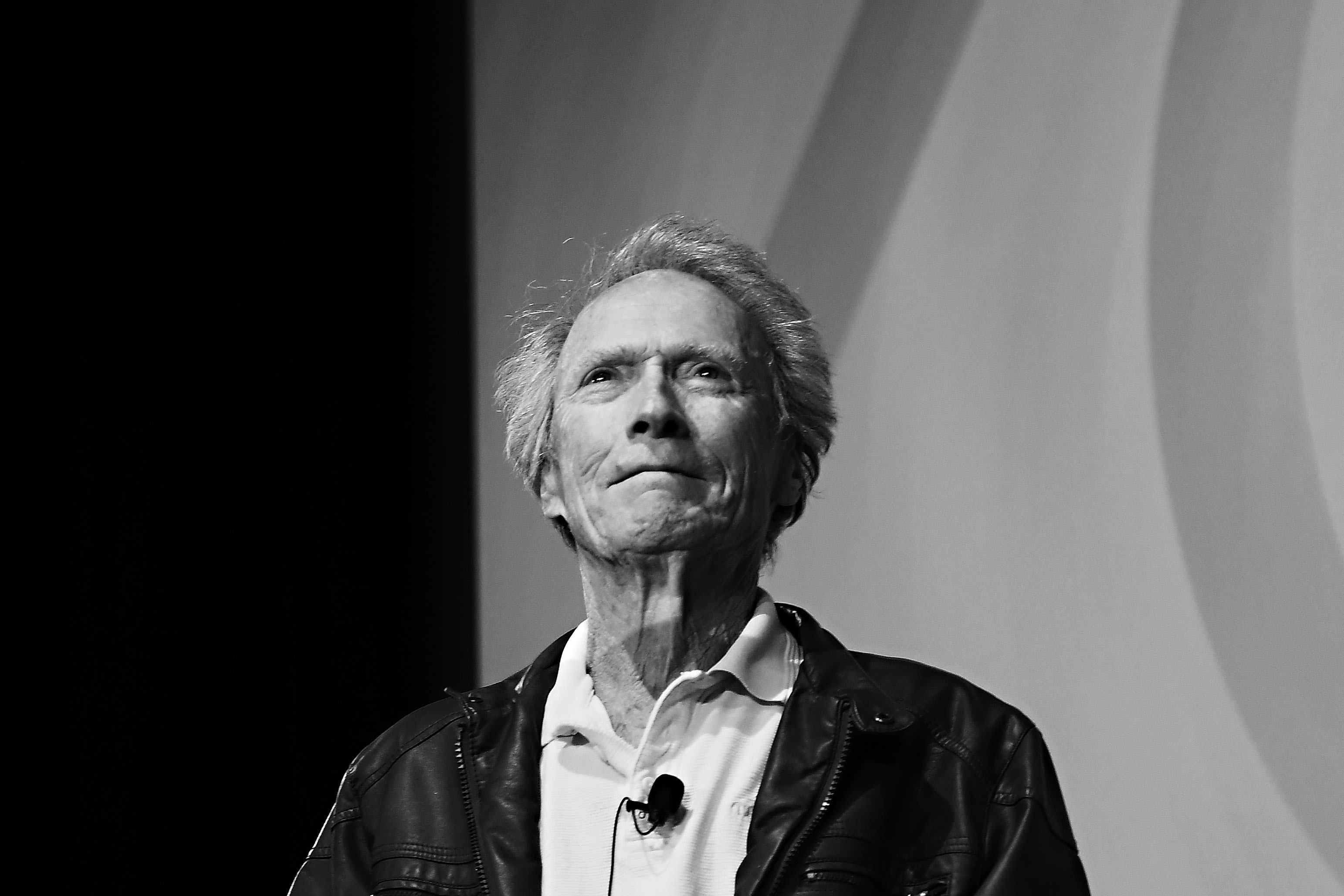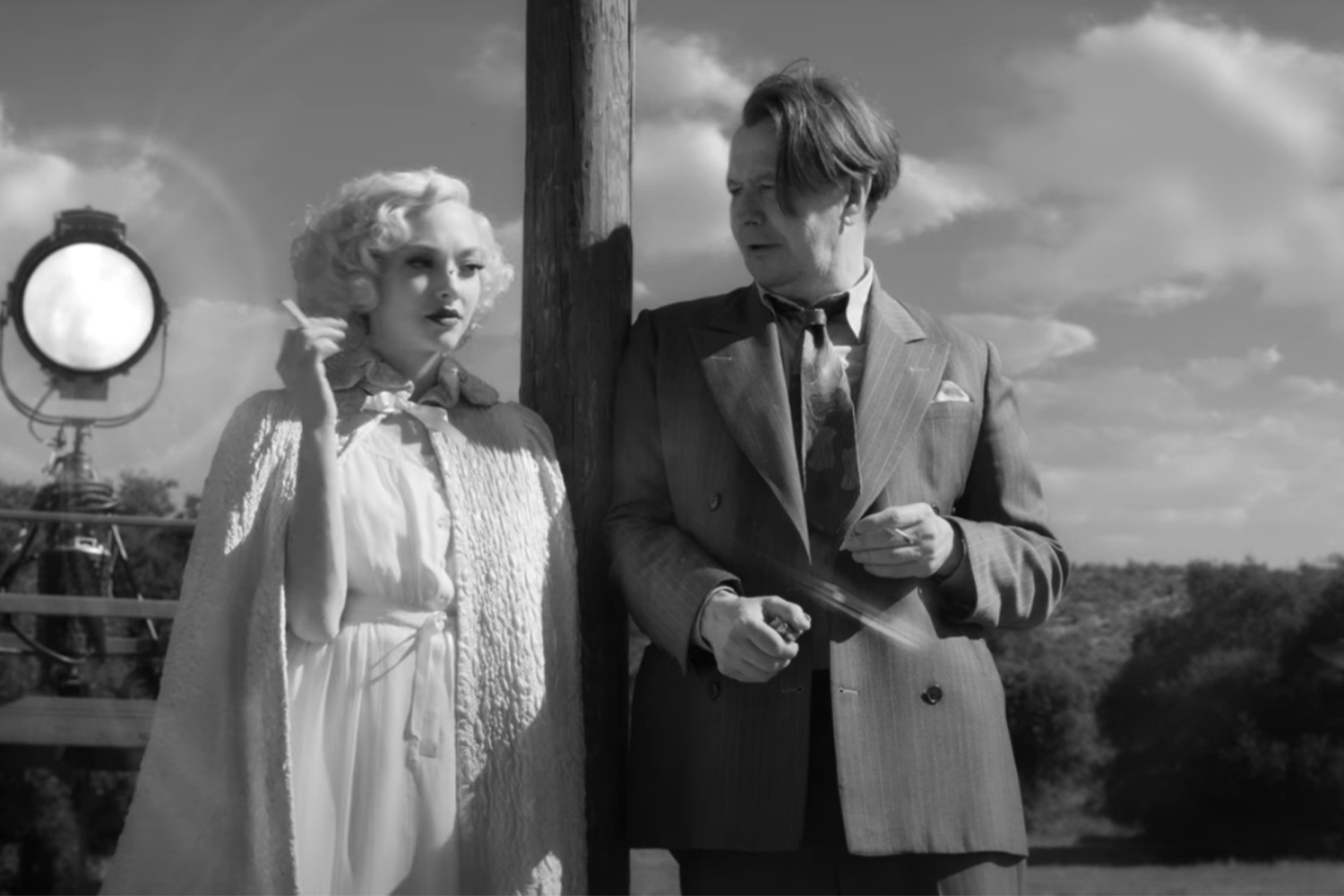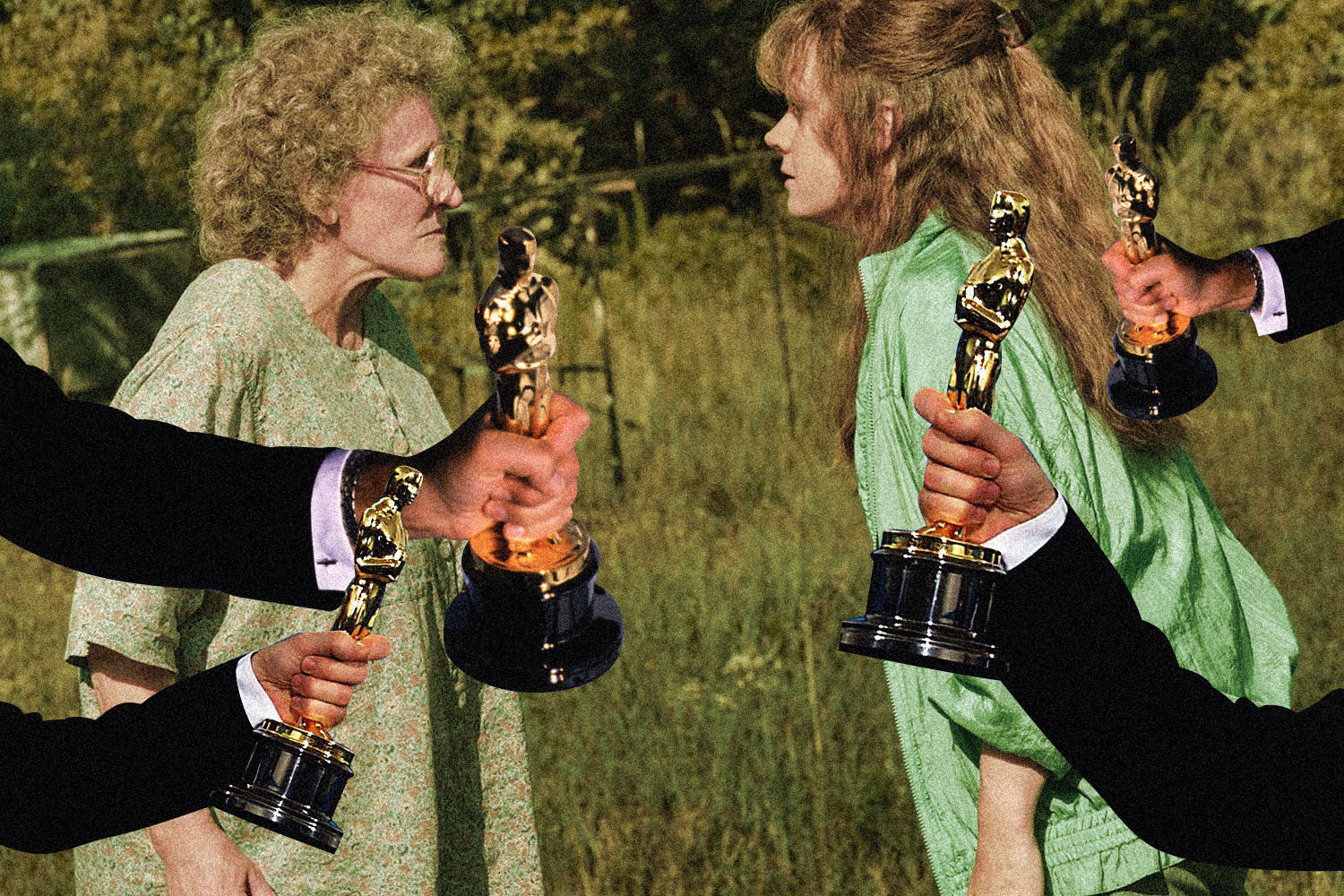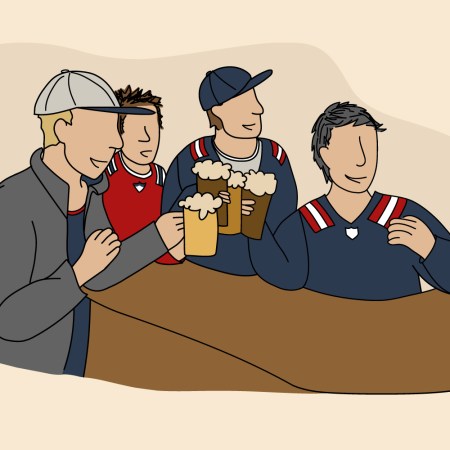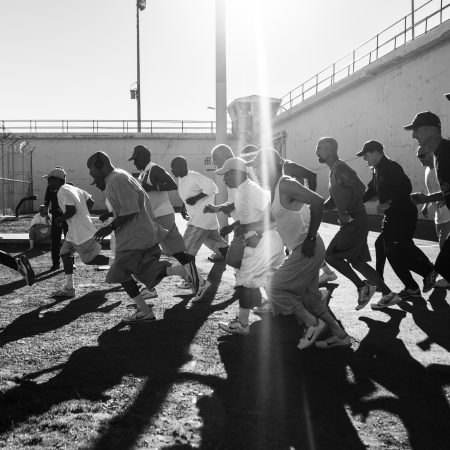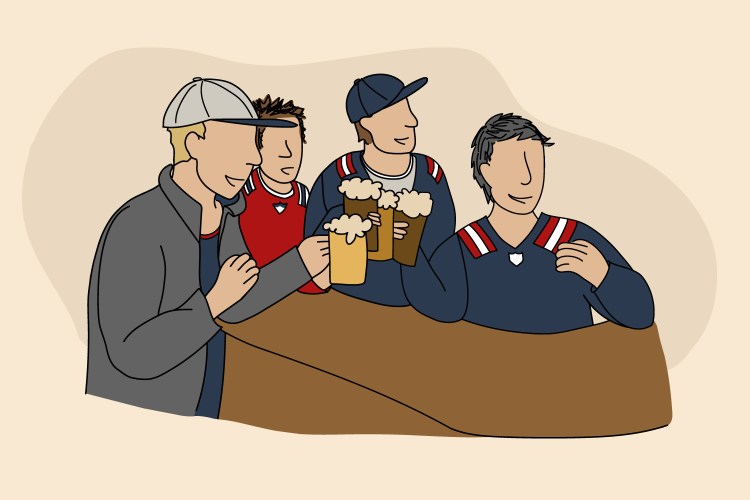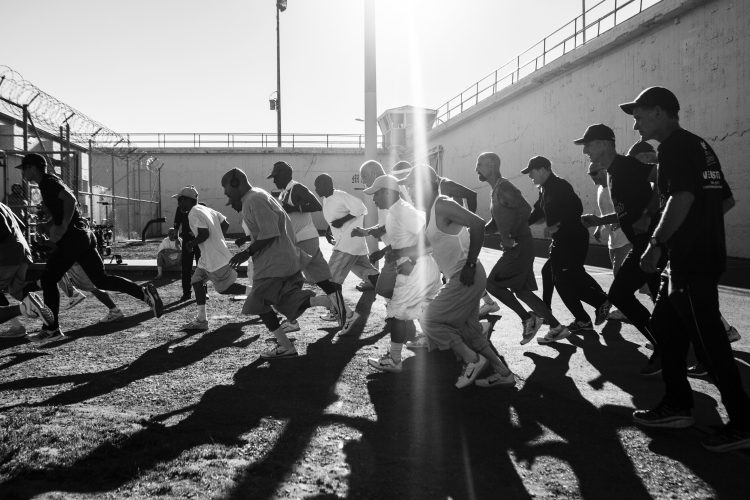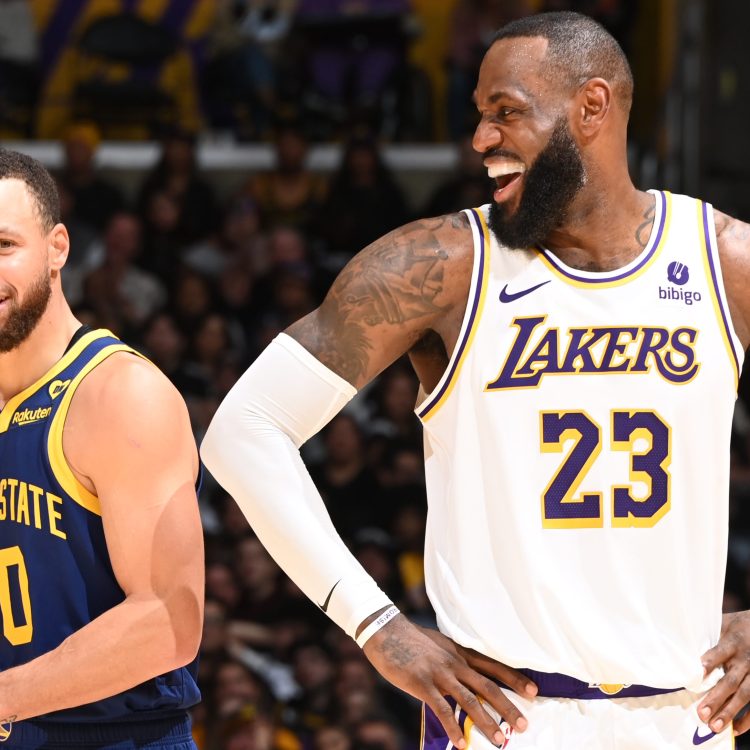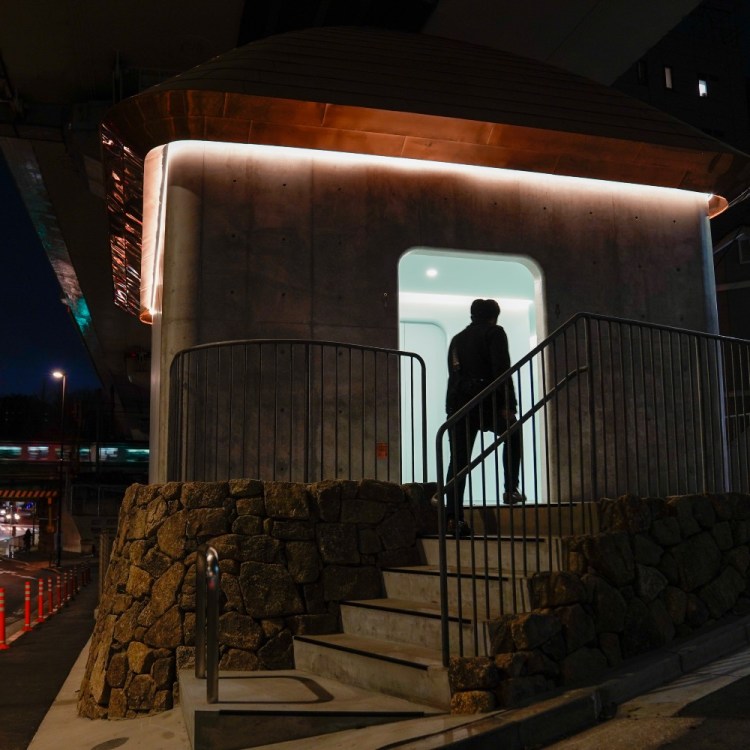Corridor enthusiasts will find much to pore over in George Clooney’s new directorial effort The Midnight Sky, available starting today, December 23, on Netflix. The film offers not one, but two new entries for the annals of sci-fi hallways, following in the lineage of 2001: A Space Odyssey’s production design team and H.R. Giger’s blueprints for Alien. A crew of astronauts set a course back home to Earth from the orbit of Jupiter on the deep-space station Æther, where aesthetics hew closer to the sleek modernism of the former, with webbed white plastic to suggest a high-tech, lightweight functionality. The other half of the plot leans to the Gigeresque, as the lone survivor at an Arctic research base on a ruined planet tries to contact the crew and warn them not to come. Before making a treacherous trek through the tundra to another facility nearby, Clooney spends a good chunk of the first act glumly wandering around a network of cold, industrial interiors redolent of classics past.
Those of us less inclined to spend a film’s runtime inspecting its scenery may be more unstimulated by the actor-director’s latest, as derivative in a holistic, general sense as it is about the particulars of style. Clooney mostly recapitulates the choicest bits from his acting filmography’s stories set among the stars: take the yawning existential void of Steven Soderbergh’s 2002 Solaris remake, add the whatever-it-takes survivalism of Gravity, dilute it all with two cups of water, and you’re getting close to the thin, unflavored spirit of the film. Even before a CGI meteor shower makes the Cuarón comparison undeniable, a keyed-in viewer gets the inkling that it’s all been done before, and mostly by Clooney himself.
That sensation, that we’re seeing a humbler version of work he’s previously completed under the tutelage of superior filmmakers, may be the defining quality of the Clooney directorial corpus. It’s the most obvious common thread tying together a patchwork of films united by little more than their familiarity and their shrunken ambitions.
Effortlessness and ease have been foundational aspects of Clooney’s appeal since his earliest days on ER, when he made saving lives look like no biggie through his patient-reassuring confidence. He’d carry that ineffable Kentuckian charm with him onto the silver screen, where it would take him far in films like Soderbergh’s Out of Sight and the Coen brothers’ O Brother Where Art Thou, his first collaborations with two of his career’s most formative influences. Going against type every now and then — frazzled and clueless in Burn After Reading, deadpan screwloose in The Men Who Stare at Goats — kept him interesting, but charisma remained the default he could return to whenever he pleased. Though he hasn’t exactly coasted, with a handful of genuinely great showings to his name, he also doesn’t really give those soul-scraping performances so enamored of the Great Thespians. Even his most intimate roles, as a detached workaholic in Up in the Air or a shattered cuckold in The Descendants, play off of our awareness that he’s the unflappable movie star we know and love.
In light of his prevailing likability, it makes perfect sense that in his second act as director, Clooney has fashioned himself as a crowd-pleasing middlebrow type. In practice, however, the variety (and variety in quality) of his output makes him look like not much of anything. The Midnight Sky marks the seventh film he’s helmed, and he’s still yet to develop any discernible identity as an auteur with his own unique sensibility. He makes broadly appealing Hollywood pictures, usually in a clear genre framework, the sort of mid-budget projects difficult to get greenlit if you don’t have Clooney-caliber cachet. Beyond that, there’s little to distinguish one of his films from the templates of the idols he appears to be emulating.
His side hustle began in auspicious fashion back in 2002 with Confessions of a Dangerous Mind, a slick stranger-than-fiction espionage thriller about a game-show creator moonlighting as a spy. In addition to the notes of smooth operator Soderbergh, the film was informed significantly by Charlie Kaufman’s script (even if Clooney sanded all the weird edges off in rewrites, much to the writer’s chagrin) and Sam Rockwell’s bombastic leading turn. His follow-up Good Night and Good Luck netted a windfall of Oscar nominations by going the “prestige period piece” route, as a respectful account of newsman Edward R. Murrow’s pushback against McCarthyism. It’s probably Clooney’s finest behind-the-camera effort, due again in part to the contributions of others, such as the beautiful cinematography from Robert Elswit and cornless reenactments from an ensemble packed with acting heavyweights.
From there, his creative debts started to mount as his work grew decreasingly inspired. The years 2008 and 2017 saw a pair of Coen knockoffs in the brothers’ preferred modes, one old-fashioned slapstick comedy and one scheme-gone-awry picture with a blacker sense of humor. The first, Leatherheads, paid homage to Buster Keaton and the Keystone Kops with a peek at the early days of professional football in the ‘20s. The second, sanctioned in an official capacity by a screenwriting credit shared with the Coens, makes clear why the Coens wouldn’t have wanted the script for themselves. Suburbicon contrasted the placid smalltown ‘50s with their nasty underbelly; a white family’s sick life-insurance con unfolds as the neighborhood’s new Black residents get persecuted in the background, their existence bluntly symbolic and impersonal. It was widely panned upon release, despite gaining a fan in amateur movie critic Chance the Rapper.
That leaves The Ides of March and The Monuments Men, outliers in a C.V. that doesn’t really have any in-liers. One’s an exciting if insubstantial political thriller without much to say, hamstrung by a blanket cynicism and lack of specificity to any modern climate. The other’s a pseudo-Spielbergian war picture at an angle, leaving the battlefield to focus on a crack team tasked with rescuing artworks purloined by those dastardly Nazis. Neither film is bad enough to be offensive, nor good enough to be memorable.
Clooney has spent years aping the geniuses he’s had the privilege to watch up close, resulting in a lot of films that are extremely competent without ever breaking through into greatness. No one’s more reliable while being so consistently unsatisfying at the same time.
Which returns us to The Midnight Sky, the biggest production he’s directed to date. It would seem that an inveterate avoider of risks (unless you count something as unfashionable as a pre-Depression sports comedy as a risk) is really trying something here, with the techno-grandeur of The Martian and the desperate, haggard will to live of All Is Lost. The affable Clooney we recognize has vanished, replaced by a somber, miserable, bearded, solitary shell of a man. It’s for good reason he usually stays away from these sorts of gigs, turns out — Clooney’s lumpen and far from captivating, perhaps the first performance of his life that could have conceivably been delivered by someone else. And the movie itself is no epic either, more like a medium-sized, modest stretch of his abilities in the broad mold of a directorial big swing. There’s a lot of urgent-toned talking in front of control panels, and little wonder for the might of the cosmos.
Aside from a truly dunderheaded twist in its final minutes, there’s nothing too unpleasant or off-putting about The Midnight Sky, which is just passable enough that the added draw of an afternoon spent with our pal George makes it worth a play. Perhaps joining forces with Netflix, haven of agreeable mediocrities used for laundry-folding white noise, has clarified what “the Clooney touch” really means. He’s right at home on a platform where good enough has always been plenty.
This article was featured in the InsideHook newsletter. Sign up now.
